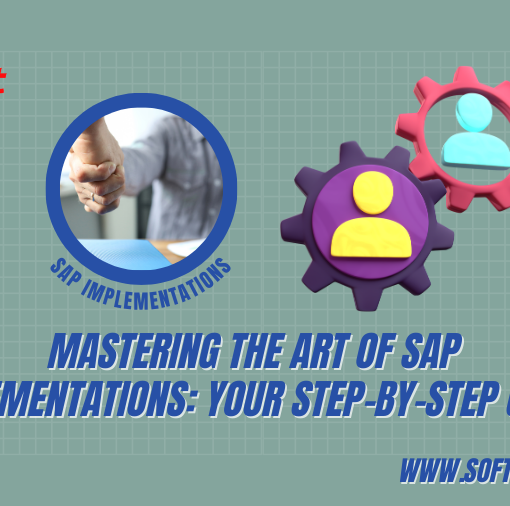In today’s rapidly evolving technological landscape, businesses are constantly adopting new software systems and tools to enhance their operations. However, the challenge often lies in ensuring that these diverse systems work together seamlessly. This is where the role of a Systems Integration Consultant comes into play. In this article, we’ll explore the world of Systems Integration Consulting, its significance, key responsibilities, and how it facilitates the smooth flow of data and processes within organizations.
Introduction to Systems Integration Consultant
Understanding Systems Integration
Systems Integration is the process of connecting various software applications and hardware systems within an organization to function as a cohesive unit. It ensures that different systems can communicate, share data, and work together seamlessly.
The Role of a Systems Integration Consultant
A Systems Integration Consultant is a professional who specializes in designing, implementing, and maintaining integrated systems. They are instrumental in optimizing business processes, enhancing efficiency, and ensuring data consistency across an organization.
The Need for Systems Integration
Complexity of Modern IT Environments
Modern businesses rely on a multitude of software systems, from Enterprise Resource Planning (ERP) to Customer Relationship Management (CRM) and beyond. Coordinating these systems is essential to avoid data silos and operational inefficiencies.
Data Synchronization and Efficiency
Efficient data flow between systems is critical for informed decision-making. Systems Integration ensures that data is synchronized and readily accessible throughout an organization, leading to improved efficiency.
Key Responsibilities of a Systems Integration Consultant
System Evaluation and Planning
Consultants assess existing systems, identify integration opportunities, and develop comprehensive integration plans tailored to an organization’s specific needs.
Integration Strategy Development
Consultants design integration solutions, determine how data will flow between systems, and ensure compatibility, often involving custom development or middleware.
Implementation and Testing
The implementation phase includes configuring systems and thorough testing to guarantee seamless integration. Consultants address any issues that may arise during this process.
Maintenance and Optimization
Post-implementation, consultants provide ongoing support, monitor system performance, and make necessary adjustments to maintain optimal integration.
Benefits of Systems Integration
Improved Operational Efficiency
Integration streamlines processes, reduces manual data entry, and minimizes errors, resulting in improved operational efficiency.
Enhanced Data Accuracy
Integrated systems ensure data consistency, reducing the risk of data discrepancies or outdated information.
Cost Savings
Efficiencies gained through integration often lead to cost savings, both in terms of time and resources.
Scalability and Flexibility
Integrated systems are scalable and adaptable, allowing organizations to respond to changing needs and promote growth.
Success Stories: Realizing Integration Potential
Case Study 1: Streamlined Business Processes
A manufacturing company integrated its production, inventory, and sales systems, resulting in reduced lead times and improved production efficiency.
Case Study 2: Enhanced Customer Experience
A retail business integrated its CRM and e-commerce systems, providing a unified view of customer interactions and significantly improving customer service.
Selecting the Right Systems Integration Consultant
Expertise and Experience
Choosing a consultant with a proven track record of successful integration projects and expertise in the systems relevant to your business is crucial.
Industry-Specific Knowledge
Look for a consultant who understands the unique challenges and requirements of your industry.
Client References
Client references and testimonials offer valuable insights into the consultant’s performance and client satisfaction.
The Future of Systems Integration Consulting
Integration with Emerging Technologies
Consultants will continue to integrate systems with emerging technologies, such as Artificial Intelligence and the Internet of Things, to unlock new possibilities.
Expanding into New Industries
As systems integration becomes increasingly critical, consultants will expand their services into new industries beyond their traditional domains.
Conclusion
Systems Integration Consulting serves as the bridge that connects the diverse technologies used by organizations today. By ensuring seamless data flow and efficient processes, Systems Integration Consultants empower businesses to remain competitive and adaptable in a rapidly evolving digital landscape.
FAQs
- What is Systems Integration Consulting?
- Systems Integration Consulting involves connecting various software applications and hardware systems within an organization to function cohesively.
- Why is Systems Integration important for businesses?
- Systems Integration is crucial for streamlining processes, enhancing data accuracy, reducing costs, and ensuring scalability.
- What are the key responsibilities of a Systems Integration Consultant?
- Responsibilities include system evaluation, integration strategy development, implementation, testing, and ongoing maintenance.
- What are the benefits of Systems Integration?
- Benefits include improved operational efficiency, enhanced data accuracy, cost savings, and scalability.
- What is the future of Systems Integration Consulting?
- The future involves integrating with emerging technologies and expanding services into new industries to meet evolving integration needs.
Read more:





